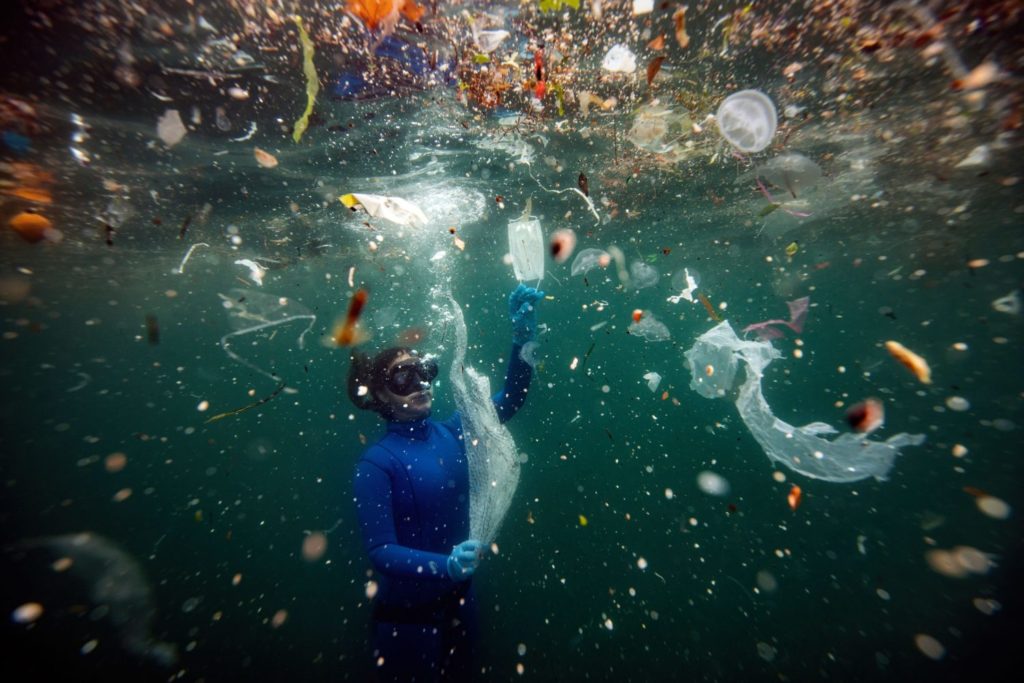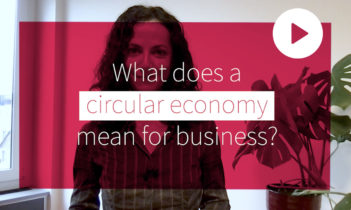
Climate conferences are regularly held, but not a single international agreement on plastics exists, despite the irreversible impact it represents for the planet.
This article originally appeared on Fortune.com
Leaders are heading to Nairobi this week for the fifth session of the United Nations Environment Assembly (UNEA 5.2), and it’s not just your run-of-the-mill conference. At the top of the agenda are talks to align the international community on the creation of a global, legally binding treaty to reduce plastic pollution.
Brands, policymakers, and NGOs alike are calling for one in order to keep plastic out of nature, reduce its production, and address what’s already in existence. And for good reason. Plastic production alone increased 79% between 2000 and 2015, and the trend isn’t slowing.
While the UN’s climate change conferences are recurrent, not a single international agreement on plastics exists despite the colossal cost and irreversible impact it represents for society and the planet.
In a bid to stop the bleeding and deal with the plastic flooding into nature, a new trend has emerged, with a twist of déjà vu: plastic credits. Some players, such as standard-setter Verra, are including plastic credits, or offsets, in frameworks and guidelines for corporations to reduce their contributions to the plastic crisis.
Put simply, a plastic credit represents a ton of plastic waste removed from nature and can be used to offset a company’s plastic footprint. These credits fund organizations that collect waste from the environment, supporting infrastructure financing and boosting recycling rates in countries that have disproportionately borne the brunt of plastic waste. Like the better-known carbon credits, plastic credits aim to fast-track companies’ efforts to achieve “plastic neutrality.”
While these plastic credits are a key part of the solution, with years of carbon credits under our belt, companies must learn from the past to avoid the common pitfalls of offsets and their use as a “license to pollute.” In other words, purchasing a few plastic credits while operating business as usual is not a credible plan. Instead, companies should follow the three golden rules: measure, reduce, and compensate—and engage the entire corporate value chain in the process.
To reduce its contribution to plastic pollution, a company should start by measuring its plastic footprint, then drastically and systematically reduce its single-use plastic packaging—and plastic more broadly—all while avoiding sustainability trade-offs. Switching to packaging made from natural fibers risks transferring the environmental impact from pollution to land and forest degradation, for example.
The second important change is to shift to sustainability-vetted, eco-designed materials (i.e., materials created with consideration for the environmental impacts across their entire life cycle, from manufacturing to disposal). At the very least, companies should switch to 100% recycled and recyclable plastic, all while striving for circularity—or keeping materials in use through a “closed-loop” system versus single use and disposal. In the absence of unified collection and recycling systems in certain markets, companies need to do a deep dive into the different service providers in each country or even contribute to their creation if necessary.
Companies must go even further by contributing to plastic pollution reduction outside of their own business activities by participating in establishing the infrastructure for collection and recycling where it’s lacking. This process may take some time because it requires engaging with the relevant stakeholders across different markets. In the meantime, a company can rely on plastic credits to offset any residual volumes of plastic waste from its footprint—but only after it has implemented eco-design actions to reduce its contribution to plastic pollution in the first place.
While years of experience with carbon credits should make it easier to navigate plastic credits, there’s a different set of challenges at play. One of the main difficulties lies in the nature of plastic and its many forms. Decisions companies make need to consider different categories of plastic and their associated environmental costs, addressing questions such as “is bio-based plastic actually any better?” and “what about compostable petroleum-based plastics?”
Much of the plastic waste that already exists has no value. Unlike aluminum, for example, where a market already exists, we first need to increase the demand for plastic waste in order to feed the recycling sector and turn something previously regarded as waste into something of value. Legal obligations, like extended producer responsibility (EPR) programs, or financial incentives will play a critical part in establishing the market.
The plastics crisis is a global issue, but the solutions put forth should be adapted to local contexts. The sale and disposal of packaging in Sweden is different from Cambodia.
There are several firms that sell plastic credits today, but the market remains entirely voluntary. The onus is on companies to do their due diligence on crediting schemes and select only those that ensure social and environmental safeguards.
Ultimately, companies must keep the end goal in sight: Plastic credits should only take place alongside efforts to shift to a truly circular business model. Certain industries—consumer goods in particular—face mounting legal and consumer pressures and are starting to get serious about tackling plastics.
By supporting a global treaty now, business leaders have an opportunity to stay ahead of the curve and lead their industries forward.
Latest resources

Are we better equipped to tackle the plastics crisis?
2022 may mark a turning point, if action matches commitments. Here’s how far the needle moved this past year and what lies ahead in 2022.

Video: What does a circular economy mean for business? Ask a plastics expert.
In this video, Quantis' Laura Peano, explains what circularity means for business and how companies can start embracing its principles.
 Report
Report With Quantis
Guidelines for Corporate Plastic Stewardship
Quantis + partners have co-developed the Guidelines for Corporate Plastic Stewardship, which provide science-based best practices for companies to reduce their plastic impact.

